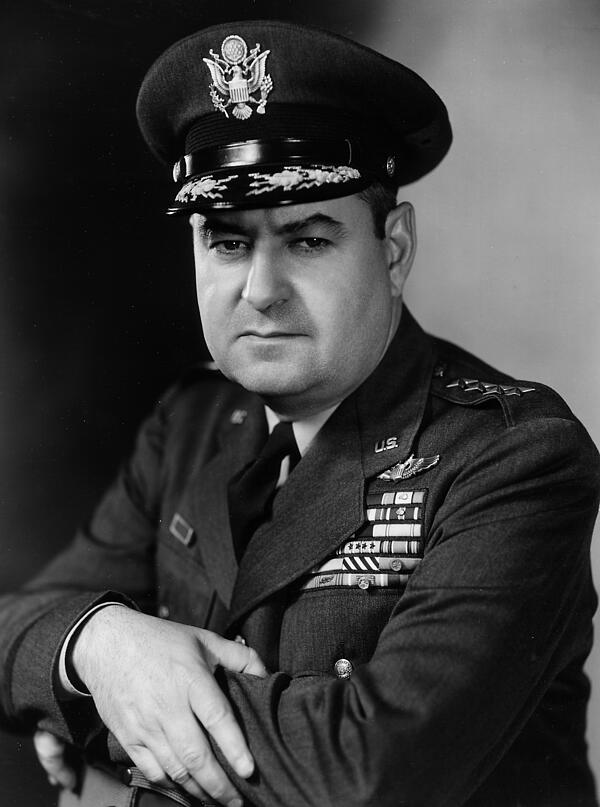Curtis LeMay and fire raids
Curtis LeMay was a general and a military tactician, most well known for orchestrating the fire raids on Japan in World War Two. Despite being treated as a national war hero in 1945, he was later accused of being an unfeeling and ruthless general. However, LeMay argued that the deadly firebombing campaign would end the war and ultimately save more lives. Like 'Arthur 'Bomber' Harris and head of Bomber Command, LeMay thought there was no way of fighting total war without including civilian targets.
Lemay’s childhood and early career shaped his blunt honesty and sober character. From a young age he took on the responsibility of feeding his mother and siblings. In 1928 he joined the Airs Corps and became a second lieutenant two years later. LeMay was known for his efficient but cold character, gaining the nickname “Iron Ass”.

Lemay’s childhood and early career shaped his blunt honesty and sober character. From a young age he took on the responsibility of feeding his mother and siblings. In 1928 he joined the Airs Corps and became a second lieutenant two years later. LeMay was known for his efficient but cold character, gaining the nickname “Iron Ass”.
America entered the war following Pearl Harbour in 1941, At this point LeMay was head of the 8th Air Force, but in early 1942 he was given command of the bombing missions in Europe conducted by the 305th Group. Here, LeMay pioneered daylight raids. In July 1944, LeMay moved to the Pacific and took command of the 21st Bomber Command.
LeMay thought that the key to launching an invasion of Japan and to destroy its manufacturing industry. Therefore, he decided that the 21st’s mission would be to destroy all of Japan’s manufacturing bases, even the cottage industriess. Faced with the limited success of strategic bombing, Curtis LeMay supported the use of fire raids to wipe out entire sections of cities. The Operation Meetinghouse air raid on Tokyo lasted from 9 to 10 March 1945. It is the most deadliest air raid in history, killing an estimated 100,000 people and the fires could be seen 150 miles away. It also destroyed 16 square miles of the city.
"Killing Japanese didn't bother me very much at the time… I suppose if I had lost the war, I would have been tried as a war criminal… every soldier thinks something of the moral aspects of what he is doing. But all war is immoral and if you let that bother you, you're not a good soldier."
After the war LeMay became Deputy Chief of Staff for Research and Development at the Pentagon. But he clashed repeatedly with John F. Kennedy and Robert McNamara. With the onset of the Cold War in 1947, LeMay was sent to Europe to work as commander of the USAF. During this time he oversaw the Berlin Airlift which further strengthened his anti-communist beliefs.
LeMay became head of the Strategic Air Command in 1949. The Cold War was looming and by 1955 both sides were in possession of incredibly powerful nuclear weapons.
LeMay was made Chief of Staff of the USAF in 1961. He was known for his rudeness and coldness - a trait that led to many clashes with politicians.
He died on 3 October 1990.
MLA Citation/Reference
"Curtis LeMay and fire raids". HistoryLearning.com. 2026. Web.
